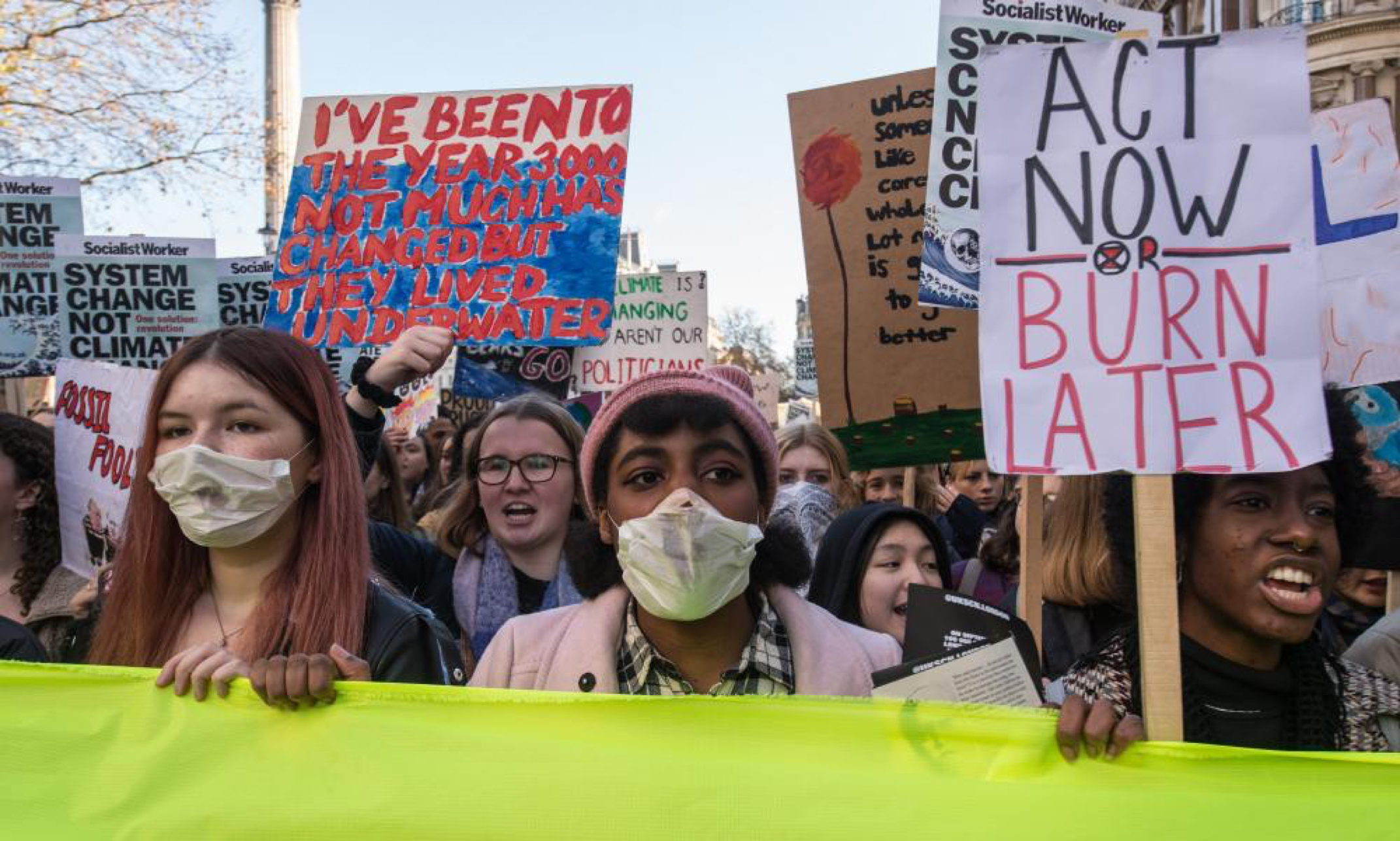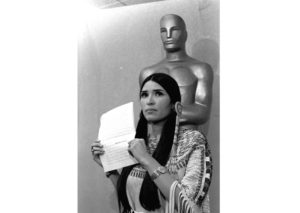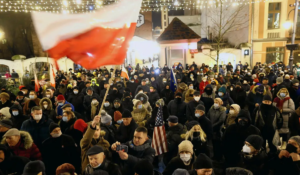For many young people, racial inequality and the climate emergency are inseparable issues
“[Without the climate strikes], I would have been a lot less confident, I wouldn’t have known how protests worked,” she said, adding that the strikes helped open her eyes to societal inequality. “There have been so many speakers at the climate strikes talking about racial injustice and how the climate emergency is going to affect immigrants and people in refugee camps first.”
Woolstencroft is one of many BLM protesters who said they were first introduced to activism through environmental movements like the Extinction Rebellion (XR) protests and school climate strikes, which swelled to enormous size in 2019.
Natanya Popoola, 17, from London, said the first protests she went to were the climate strikes, which she described as “exhilarating” because it “was being led by someone young for the first time”. She added: “The fact that we were striking school was empowering, because it was in your hands rather than asking your parents to go on a Saturday. It redefined the idea of what a protest meant. It really made me feel: I can handle this as long as I’m with a good group of people.”
While Popoola said her race has meant she has had her political awakening at a young age, she believes climate strikes have got her generation thinking about politics more deeply.
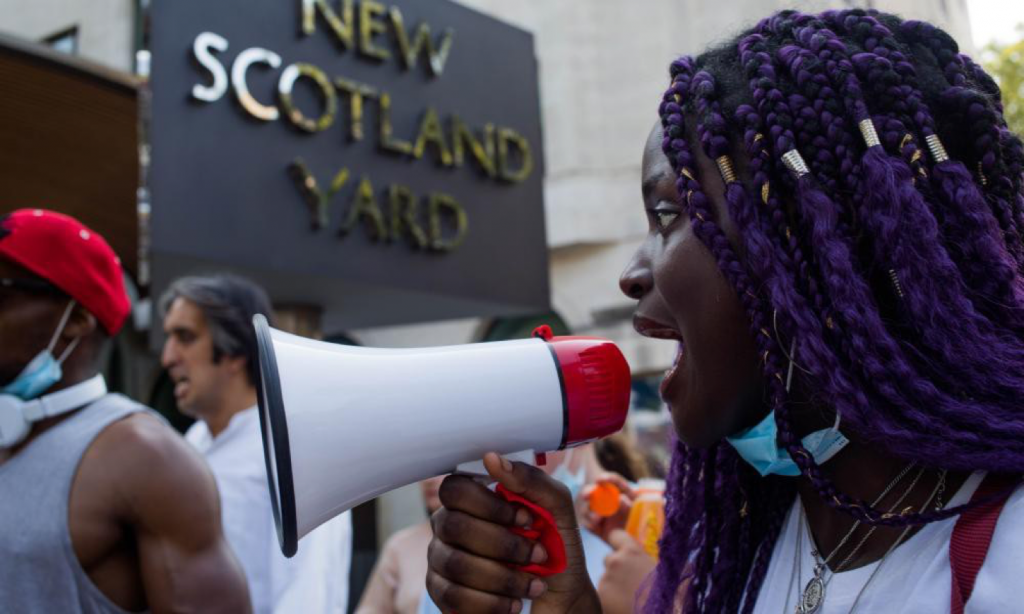
Another 17-year-old protester, who didn’t wish to be named, described the climate strike protests and the BLM movement as core tenets of young people’s identity. “It’s almost essential to know now. A lot more value is placed on politics and knowing what’s happening, whether it’s racial justice or the student climate march.”
Although the BLM protests are making fewer headlines in the UK now, many are still happening. Woolstencroft has been going along to as many protests in her home town of Newcastle as she can. “As a person of colour, when we make the change that we need to make, I want to say I was a part of that, and I helped to bring about that change,” she said.
Young environmental activists have long made the link between racial injustice and the climate crisis, and have therefore been keen to offer solidarity with BLM in practical ways.
XR organised a “know your rights” training session in June for BLM protesters, outlining what to do if you are arrested or stopped and searched at a protest.
The session covered common police tactics, the right to no comment, the arrest process, and what support is available afterwards, as well as what protesters should carry with them, such as a “bust card: with legal advice and solicitor contact details.
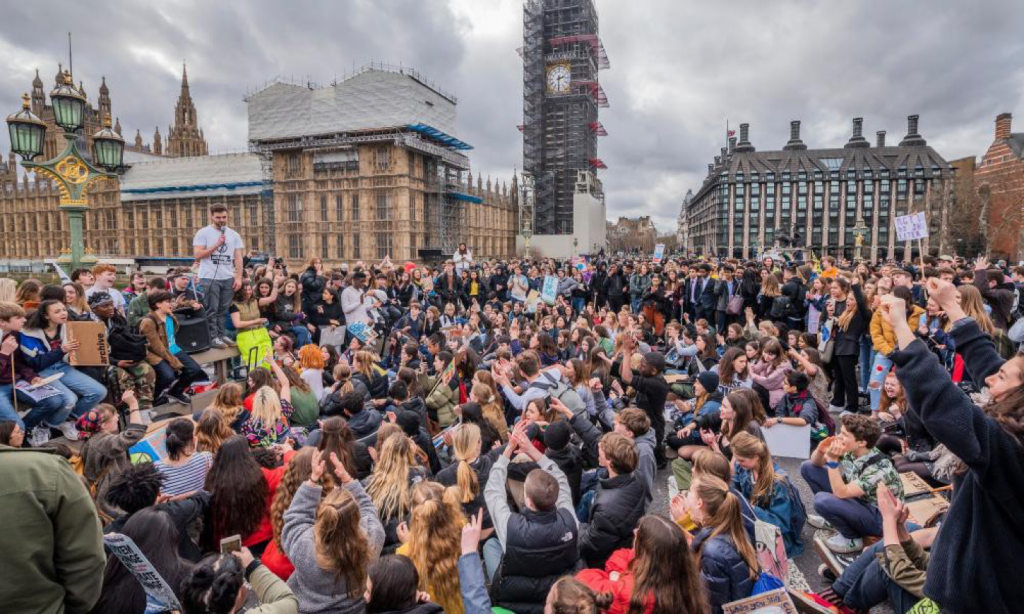
“We’re aware of the kind of institutionalised racism within the police force, so we were quite concerned knowing there would be a far higher proportion of black people and people of colour in attendance at the Black Lives Matter protests,” said Eva, part of the XR legal support team.
“We just thought, ‘We do this training all the time, so it would be really great if as many people as possible went to the protests knowing their basic legal rights.’”
Much of this experience and knowledge has been built up among XR members as a result of its tactic of mass arrests during its rebellion in October, which was criticised for excluding minority groups.
In the wake of the BLM protests, XR released a statement acknowledging this and outlining how it would prioritise anti-racism going forward: “We recognise now that our tactic of arrest has made it easier for people of privilege to participate and that our behaviours and attitudes fed into the system of white supremacy. We’re sorry this recognition comes so late.”
The news was welcome to XR Youth, which has long been vocal about the need for greater inclusivity in the organisation, and hopes this is the start of wider change. “There has been talk for a while now about a fourth demand, about climate justice and racial justice, being added to the current XR demands,” said Rianka Gill from XR Youth. “It’s already being incorporated into more local XR groups, so my hope is that it reaches the masses.”
Lola Fayokun, an 18-year-old student who helped organise the UK school climate strikes, spoke at a BLM digital rally about climate justice, a term that frames the climate crisis as an ethical and political issue, not just an environmental one.
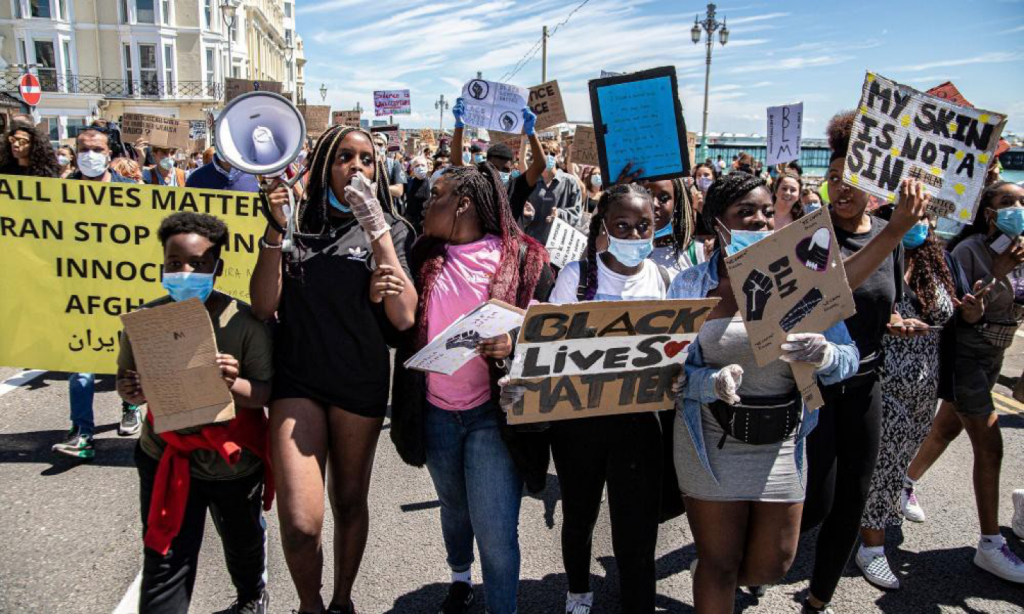
“If you’re tackling climate change while ignoring the fact that it will disproportionately impact all the most marginalised people in our society, and they already are bearing the brunt of this crisis, then you’re doing them a grave injustice,” she explained.
But this is also a critical moment for environmental groups to tackle racism within the movement itself, she said, and more needs to be done.
“It needs to come into everything. There’s no point in releasing a Black Lives Matter statement if the majority of strikers are white, the majority of organisers are white, if the vision that we’re actually promoting is not one which defends black lives,” she said. “The [environmental] movement is typically seen as like a lot of white, middle class people doing the work behind the scenes, so we have to do the work to change that.”
For many of the climate activists, the BLM protests also offered a moment to reflect on how their movement is perceived, and therefore policed, differently.
“As climate strikers, we get policed less than a Black Lives Matter march,” said Fayokun. “That’s obviously really important for our understanding of the relationship between policing and the maintenance of certain power structures.”

